In the official state of Maine literature on the matter of wildlife rehabilitation, the authors list a number of common myths about the profession.
The second most common myth encountered by state licensing officials, according to the write up, is that wildlife rehabilitation is fun.
“Wildlife rehabilitation can be interesting, stimulating, rewarding, and sometimes pleasant,” according to the literature, “but it is rarely fun. Rather, it is physically and mentally demanding, emotionally stressful, and considerable work. It involves many tasks that are not pleasant, such as cleaning wounds, scrubbing cages, and occasionally making the decision to euthanize an animal that is suffering and cannot recover.”
Animal rehabilitation is not a hobby, state officials are pretty clear on that, as well. It’s not something just anybody can do. And a simple love for animals is not necessarily enough.
Kathi McCue knows all this. The owner of Wilderness Miracles Wildlife Rehab and K&K Animal Damage Control in Bowdoin, she set out to become a rehabilitator and animal control agent in 2018 and is only recently getting into the swing of things.
Make no mistake: Becoming a wildlife rehabber is not for the lazy or the squeamish.
“In order to get a wildlife rehab license you must reach out to Inland Fisheries and Wildlife,” McCue says. “You receive study material, you need to volunteer at a licensed facility for at least 100 hours: learning handling, caging requirements, feeding techniques, cleaning, quarantine protocols, etc.”
On the Maine Department of Inland Fisheries & Wildlife website is a section called “Minimum Standards for Wildlife Rehabilitation.”
That section is 128 pages long and covers everything from reporting requirements to prevention of disease transmission to disposal of carcasses and animal waste products.
It’s a ton of work. It’s often gross and almost always stressful. Long, long hours and overwork seems to go with the territory.
So, who in their right minds would want to take this on?
Well, Jennifer Marchigiani, for one. The owner of Misfits Rehab in Auburn, she’s a 20-year veteran of the wildlife game and a woman so experienced in the business, she’s called on to train others.
Like the state officials who stress the difficulties of getting into wildlife rehab, Marchigiani agrees that it’s not a line of work for just anybody.
“Because it is not about snuggling cute wild animals,” she says, “there is a lot of heartache, stress, financial burden, etc.”
So when Marchigiani gets to training a newcomer, it’s pretty clear at once if that rookie is cut out for the rigors of animal rescue. And with that in mind, Marchigiani is clear on one point: Kathi McCue is just the kind of person the area wildlife rehab community needs.
“Kathi is amazing,” Marchigiani declares. “She was so eager to learn anything and everything I was willing to show her so we did it all!”
Bear in mind that animal rescuers such as these two aren’t just dropping injured raccoons and abandoned baby skunks into boxes and hauling them off to the professionals.
“Being a rehabber you are pretty much forced to do a lot of things that a vet should do,” Marchigiani says, “but we have to triage some pretty critical cases before we can even get them in to see a vet.”
When Marchigiani got into the business in 2002, the state permitting test only had 10 questions and they were basic questions at that. The test is much harder these days and there are more restrictions on those hoping to break into the exciting world of wildlife rehab.
McCue, says Marchigiani, will benefit from the more rigorous testing and training she was required to undergo.
As far as Marchigiani is concerned, McCue definitely has the right stuff for the job.
“She has an amazing personality and even more energy than I can muster,” Marchigiani says, “so she was a breath of fresh air to have around. I was happy and sad when she opened her own place, Wilderness Miracles. I was sad to not have her as a partner here, but so glad that she is branching out on her own and actually lightening the burden of intakes here.”
McCue also trained with the Saco River Wildlife Center, so her training was well-rounded. But there was one more person in the business who influenced her, and that’s where I came in.

A rescued opossum is not happy about the attention at Wilderness Miracles Wildlife Rehab in Bowdoin. Daryn Slover/Sun Journal
WILD WILDLIFE
I got interested in McCue’s story when I was told about her by Rich Burton, owner of Specialized Wild Animal Trapping in Lewiston and one of the most active and colorful animal controllers in the area.
“She is really doing a lot for wild animals,” said Burton, who then went on to list the inventory of wild animals currently being helped by McCue. This includes, at last count, 67 baby raccoons, 10 baby opossums, four baby red foxes, two baby gray foxes, an adult gray fox, a baby porcupine, an adult porcupine, a weasel, a fisher, a mink, and an adult raccoon.
Burton was impressed with McCue, and anyone able to impress a wild man like Burton is of interest to me. So I set about trying to figure out what drove this lady to get into such a scrappy business.
She’s the mother of three grown children and grandmother to another three, is McCue. She’s a former sous chef who worked in Michigan before coming to Maine.
How does a professional chef get into the rough and tumble world of wildlife handling? For McCue, it was a health crisis.
“I decided that ‘the wild life’ was for me after a battle with head and neck cancer five years ago,” she says. “While recovering from radiation treatments, I took that time to learn, study and network.”
The idea didn’t just come out of nowhere. By the time she was temporarily hobbled by cancer, she had already been volunteering with a local wildlife rehabber.
“That’s when I knew that this was what I wanted to do,” McCue says. “I fell in love with this work. So, in November of 2018, I set out to achieve my goal of becoming a licensed wildlife rehabber and then opening my own rehab facility. And by April 2020, I had achieved my goal.”
Now McCue runs Wilderness Miracles, with help from her husband, Ken Pillsbury, who builds all of the business’s outside enclosures.
McCue’s new occupation meant a complete change of lifestyle for the couple; housing nearly 100 critters — from mice to bats and ‘coons to coyotes — tends to shake things up a bit.
“Walking into our rehab, which is in our basement, is loud at times,” McCue says, although, “First thing in the morning, it’s really quiet and when they start to wake up, you can hear them quietly moving around, chittering and purring. It’s music to my ears.”
At first glance, it’s sounds like a ball, frankly. Why, having all those happy creatures around must be like living in a Disney cartoon!
Alas, no. Caring for wild animals means encountering a little bit of everything. There’s disease, there’s death, there are bites and scratches. An animal rehab has to be conditioned to expect the unexpected.
“Being scratched happens all the time,” McCue says. “Bites happen, but if you wear proper gloves, it’s not as painful. I and most of my amazing volunteers are vaccinated against rabies — not something that is required, but I do insist they have that protection.”
Getting attached to the animals, too, is a risk because where large numbers of animals are gathered, chances are good some bad things are going to happen. And bad things tend to be learning experiences.
A year ago, McCue took in three raccoons from Waterville who were in rough shape and suffering, an experience she described as “nerve wracking and sad.”
All three of those animals died and the one coon they tested for rabies tested positive.
“Our worst year yet was last year,” McCue says. “We took in so many raccoons. We ended up with parvovirus that took the lives of a third of our raccoons. Sadly, I learned so much from that. I now have strict quarantine protocols in place. All raccoons go through a two-week plus one-day quarantine. They are all vaccinated against parvo, distemper and rabies during this time. Costly yes, but effective.”
And speaking of cost, who’s paying for all this, anyway? Not the state. No wildlife rehab is state-funded, McCue says. Everything at Wilderness Miracles, as it is for other wildlife rehabbers, is paid for out of pocket.
“We have lots of fundraisers, to help with the cost,” McCue says. “We are also working on obtaining our nonprofit status. I have truly amazing volunteers that are trained, able and committed to our wildlife, thank goodness.”

Speck is one of four foxes that Kathi McCue is caring for at Wilderness Miracles Wildlife Rehab in Bowdoin. Daryn Slover/Sun Journal
WRESTLING RACOONS AND A SHY BABY FOX
When a new wildlife handler like McCue comes along, it’s cause for celebration among others in the business. There’s no competition here, and in fact it’s quite the opposite. There are far more wild animals in need of attention than there are people to provide it.
“There are certainly not enough rehabbers,” says Marchigiani. “We lost four rehabbers in the state this year and even looking at the list that the state has on their page is not accurate — there are rehabbers listed that have not rehabbed in many years.”
McCue and others like her are welcomed into the wildlife rehab circle. The more cooperation between rehabbers around the state, Marchigiani says, the more animals in need will be helped.
“Networking is essential,” she says. “There are still a few rehabbers that are a bit reclusive and cut off, but not many. Most of us communicate regularly, share supplies, talk about upcoming conferences and share knowledge gained.”
And the education of these rehabbers is never finished; the state wildlife management’s updated guidelines make sure of that. As we said at the start, it’s not a business for the unmotivated.
“One of the best things that I like about the new permitting process,” Marchigiani says, “is (the need) to have continued education every year so people can continue to grow in knowledge, as new information on diet, nutrition, triage, medication, changes to formula, etc. is always changing — yet another reason for networking.”
Marchigiani’s Misfits Rehab is already a well-known and much-loved local wildlife rehab center with more than 8,000 followers on Facebook alone. Report an injured or distressed animal in the Lewiston-Auburn area and chances are good that a whack of strangers is going to advise you to call Misfits at once.
In Bowdoin, McCue is starting to establish the same kind of devoted following, helped in part by the numerous animal photos (including my favorite, of a camera-shy baby red fox) that grace her page. I mean, come on. Who among us isn’t a sucker for photos of baby raccoons wrestling in a box or a newborn opossum being tube fed?
Mostly, though, it’s her growing reputation among critter lovers and other animal controllers that’s causing her popularity to grow. Even by the state and national standards that make breaking into this business so tough, McCue has established that she has the right stuff.
What’s the secret to success in this raucous line of work? McCue can sum it up in just a few words.
“Busy, busy, busy,” she says. “All the time.”
Send questions/comments to the editors.


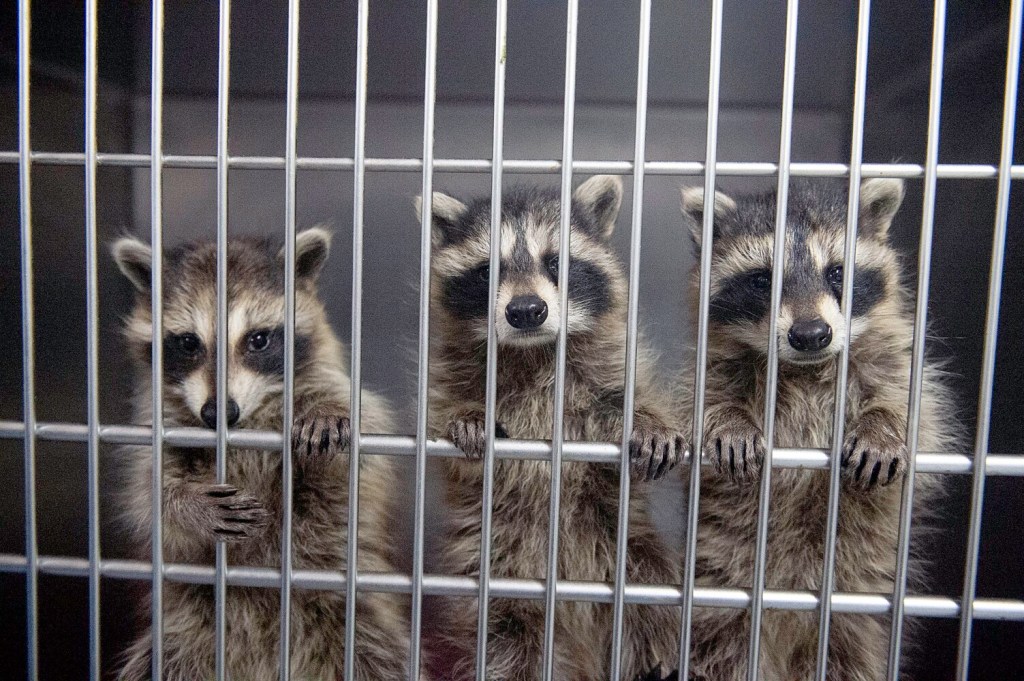
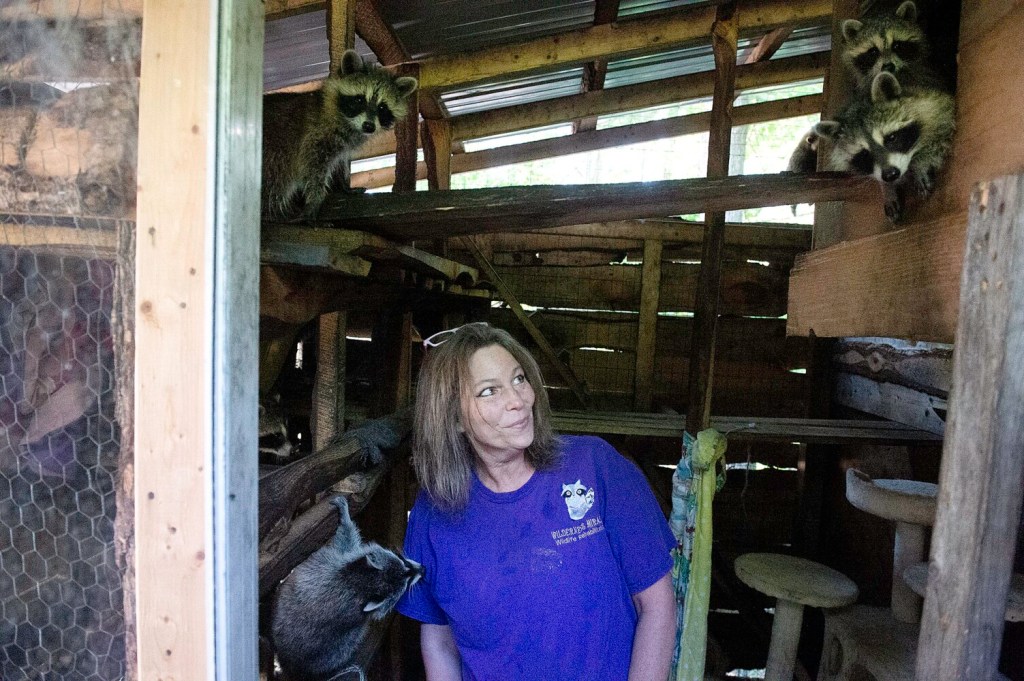
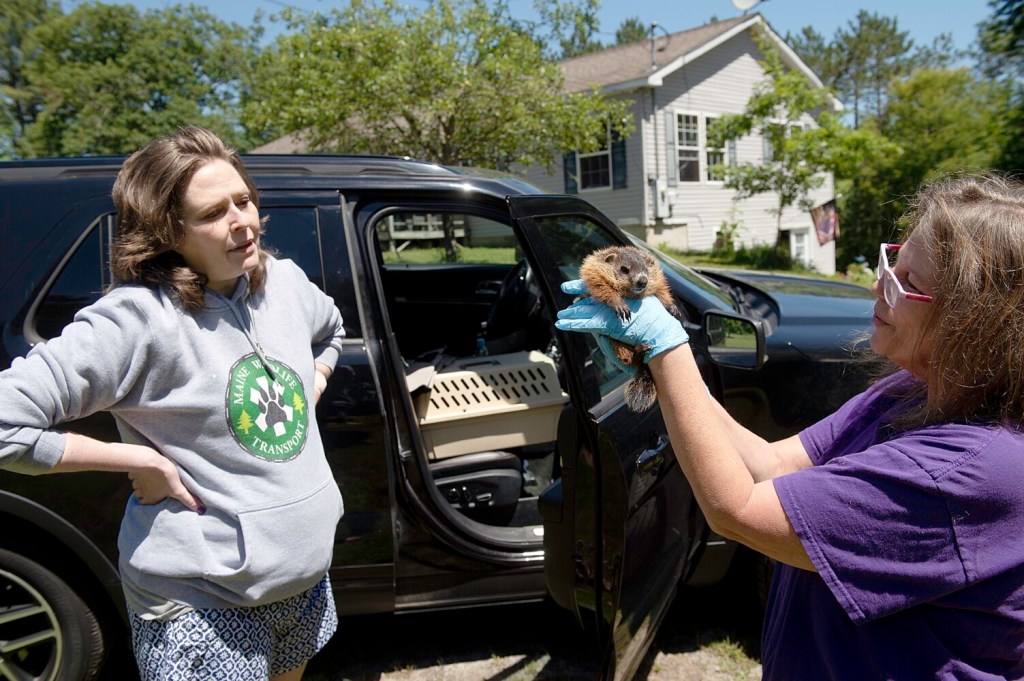
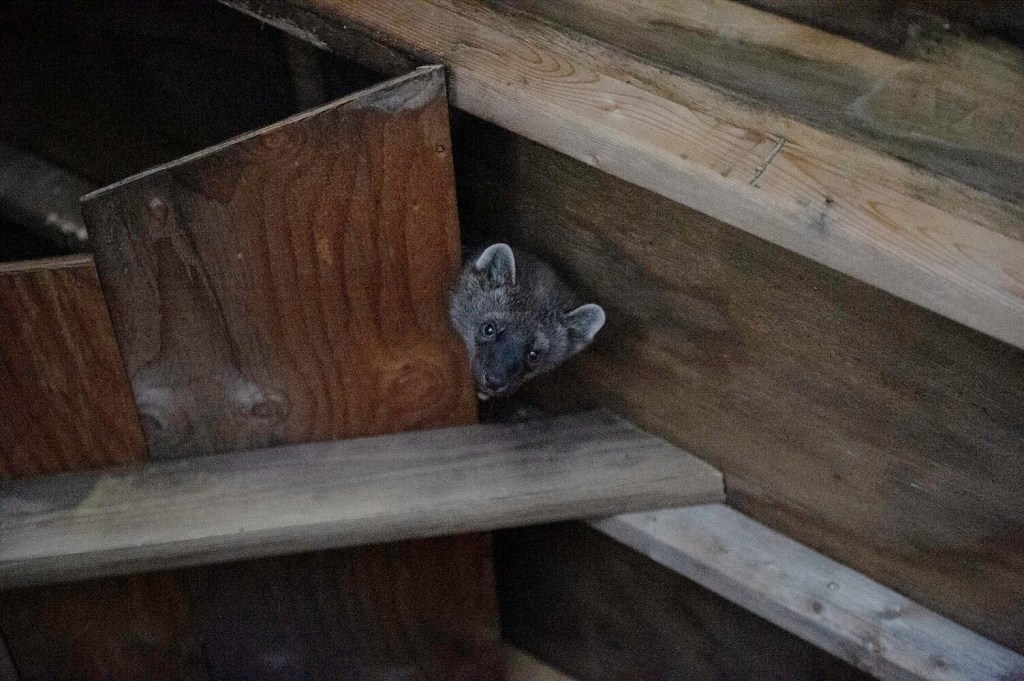
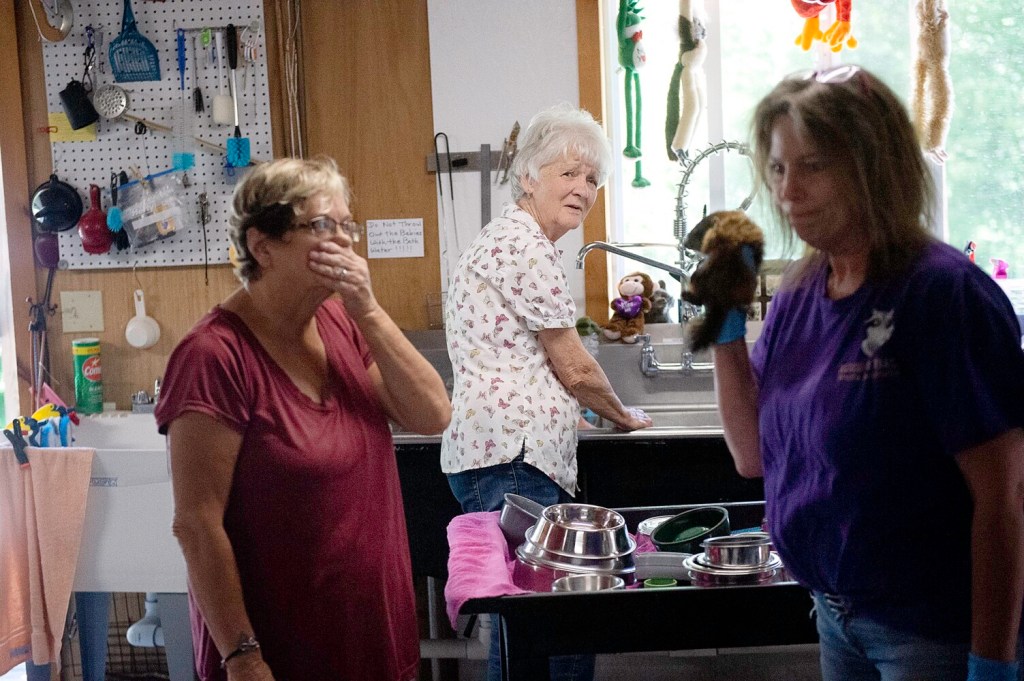
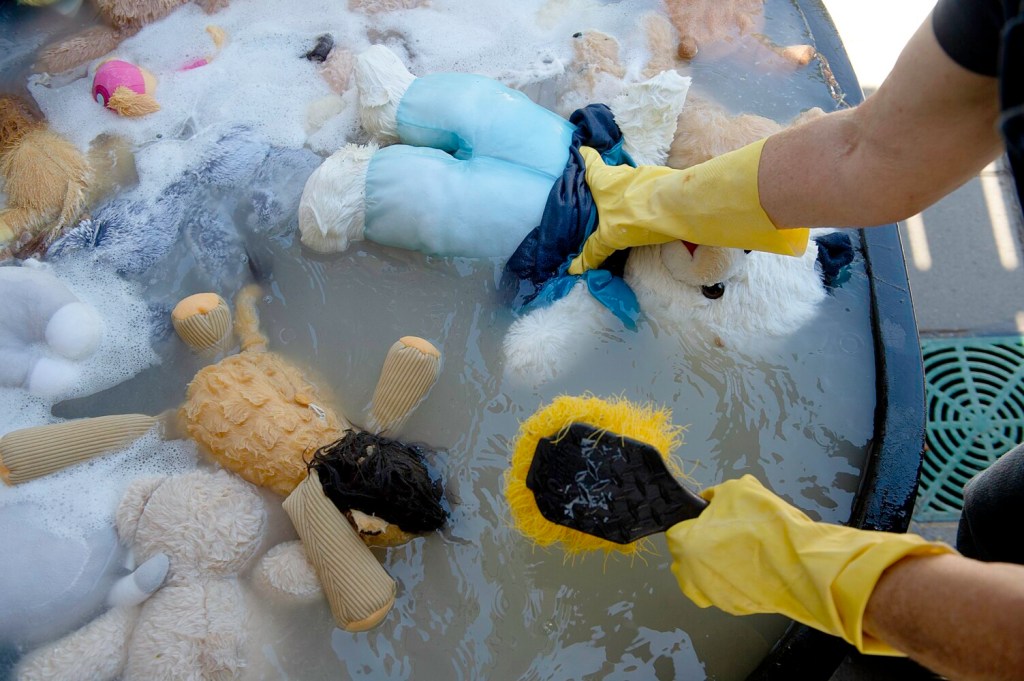
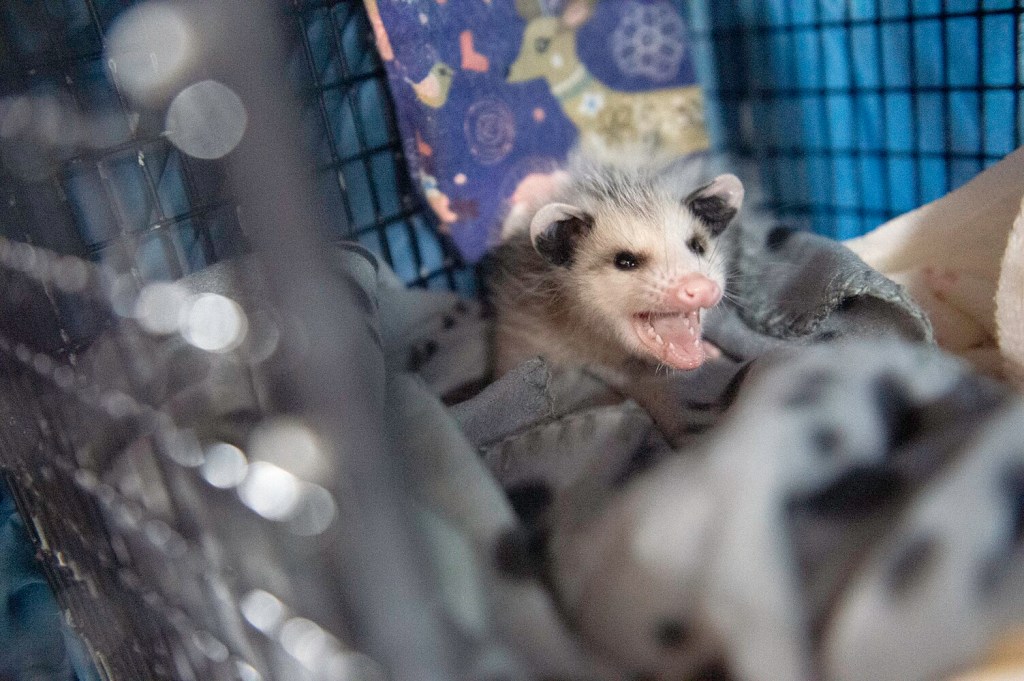
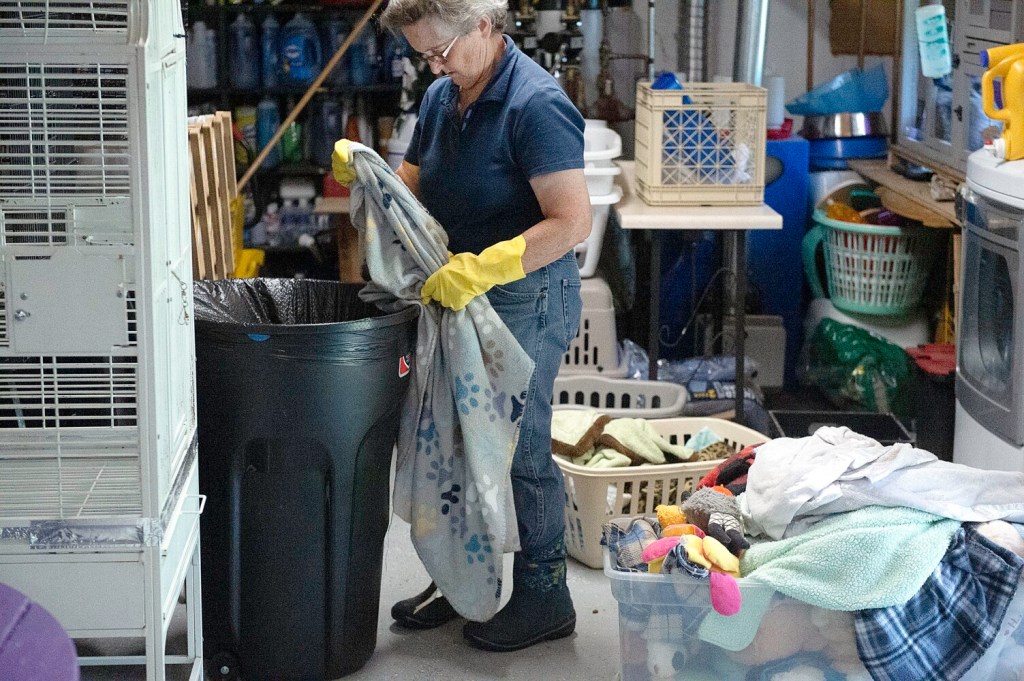
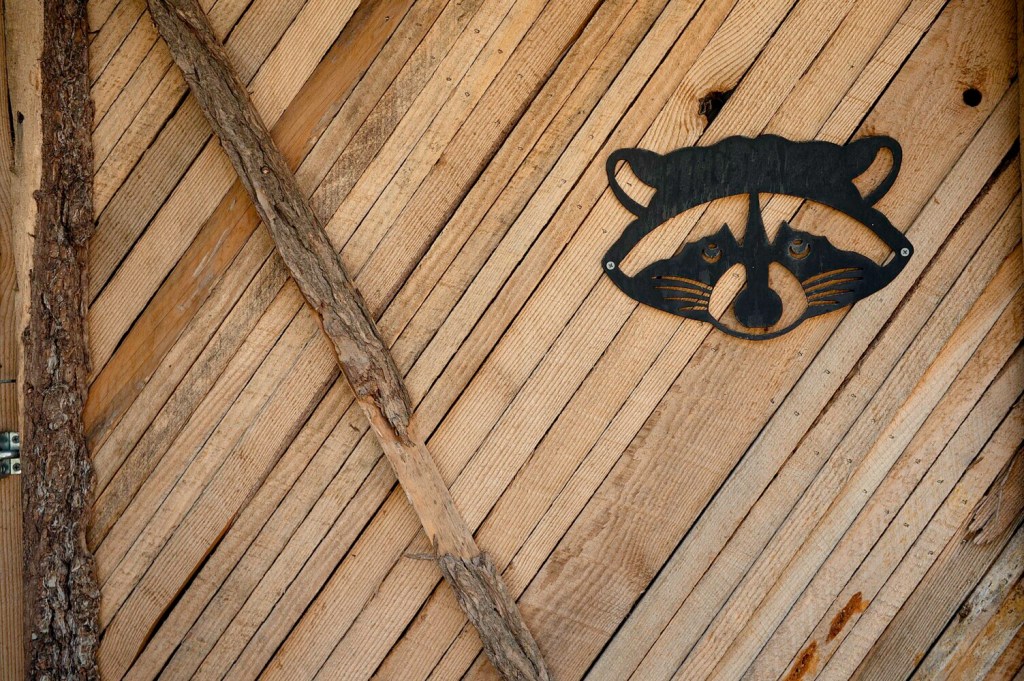
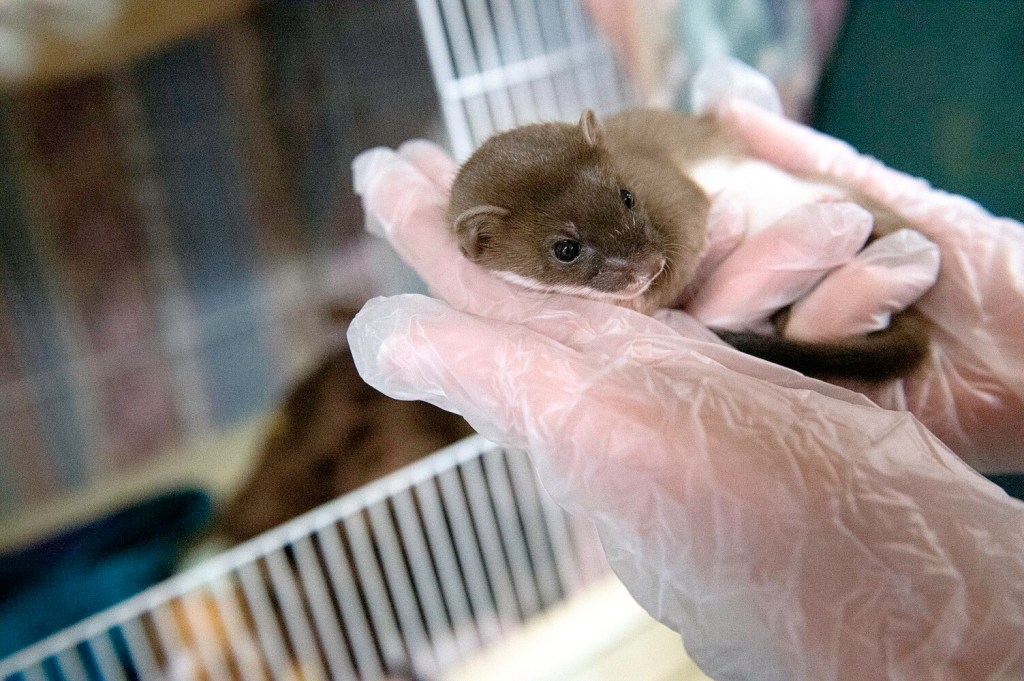
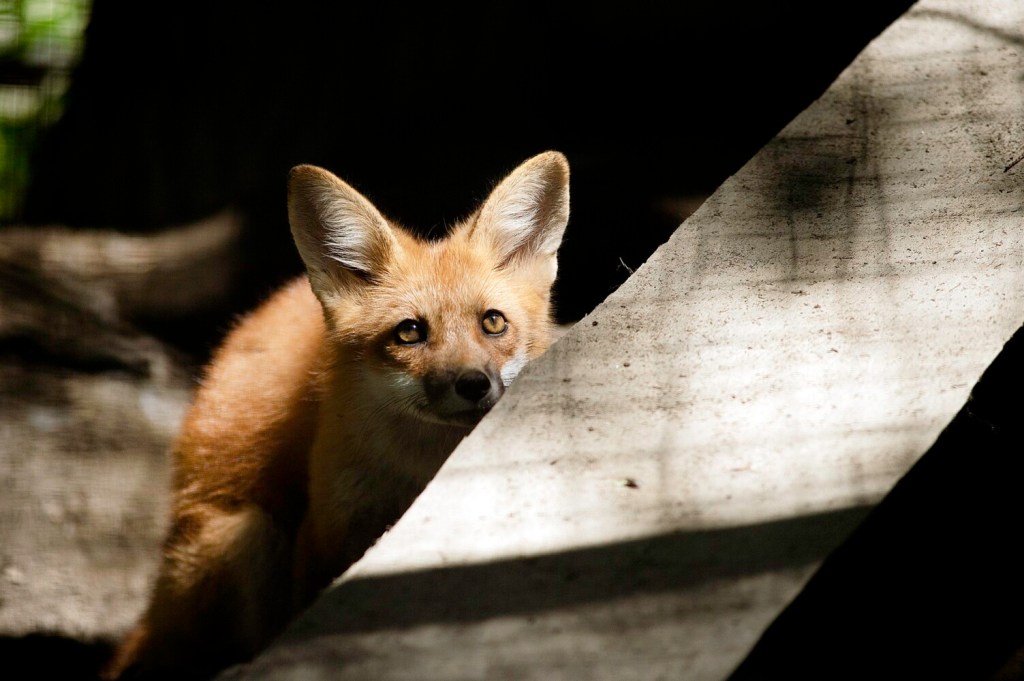
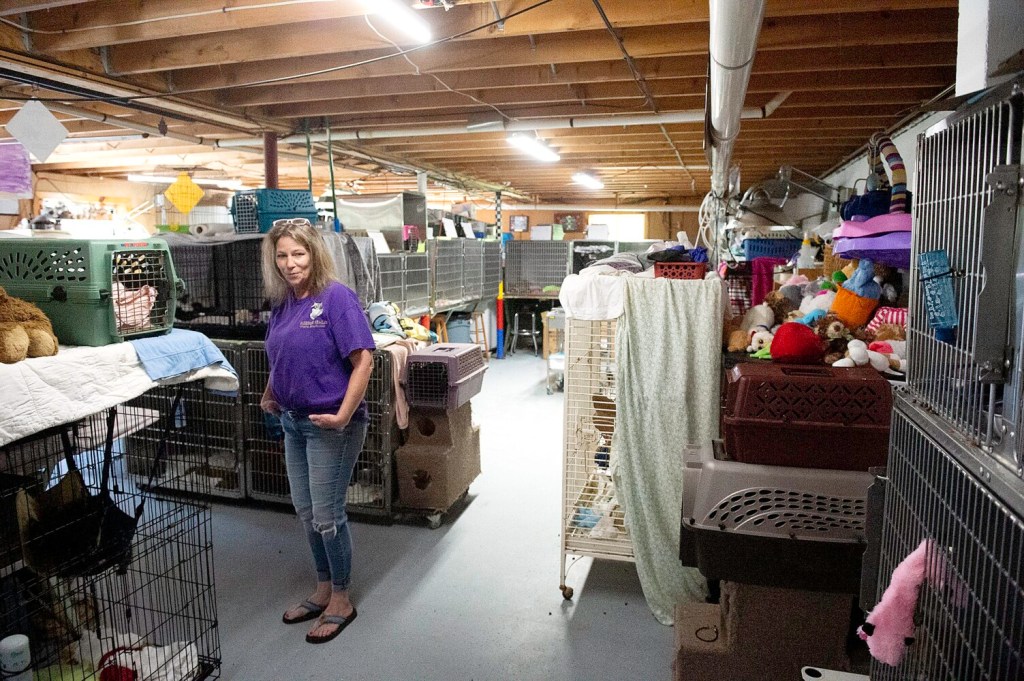

Comments are no longer available on this story